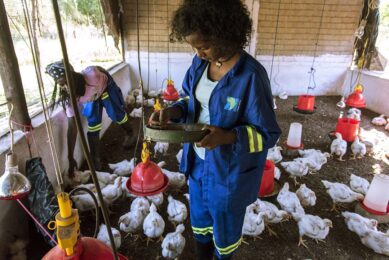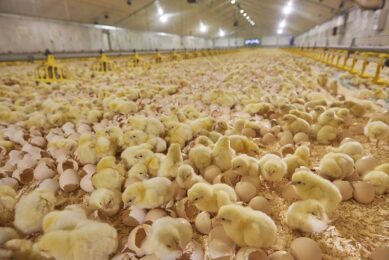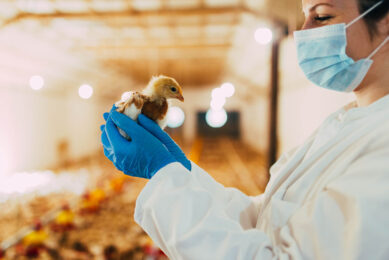Antibiotics: Your own health at risk
Many people believe that intensive animal production cannot go without the use of antibiotics. To a certain level they may be right, since various producers consider its use as harmless and profitable. Sometimes the use is part of the standard feed, while there is no immediate bird health issue involved. Preventive antibiotic use is then the excuse.
For a long time this was accepted, but the situation changed when the first rumours about bacterial resistance made headlines in the public news media. Many producers, though, ignore the worries expressed by public health officers and consumer representatives. They probably believed that it was all hype and would fade away over time. Reality, however, is different. Antibiotic resistance is real and it caused serious public health issues. It affects consumers as well as producers.
The most serious problem is the Methicillin-resistant Staphylococcus aureus (MRSA). This is a bacterium responsible for several infections that are difficult to treat in humans. It has adapted to survive treatment with beta-lactam antibiotics, which is especially troublesome in hospital-associated infections. Although the issue regarding resistance was originally not seen as being related to animal production, it now definitely is. In case of hospitalisation, livestock producers are registered as such and may be taken into isolation. They are seen to be a special threat and possible carriers of multi-resistant bacteria. In case of an infection with such a bacterium the patient will suffer from problems that are difficult to treat, if a treatment is even available.
With this knowledge, livestock producers need to understand that using antibiotics is not without risk for the health of himself, his family, as well as his staff. It is his responsibility to determine whether antibiotics are being used and to what level. He also remains responsible for the quality and safety of the food products he delivers to the market, as well as for the image of these products. It is easy to loose a good image, but extremely difficult and expensive to gain a good image back. Consumers are becoming more and more aware of the risk of antibiotic use in meat and egg production and may decide to not buy products that are believe to be risky.
Although most of the time MRSA is linked to pig production, it is also related to the veal and poultry industry. The industry, therefore, cannot shrug its shoulders and move on if nothing was wrong. In this case it would be wise to redefine the term prudent use of antibiotics. Time is up for those who use antibiotics to cover up bad management, poor housing conditions or insufficient health care. The standard rule should be: Do not use antibiotics unless there is a serious health issue and no other remedy applies. Veterinary practitioners, who usually authorise producers to use antibiotics, should also take responsibility and prevent unnecessary antibiotic use and the development of antibiotic resistance in animals and humans.
Join 31,000+ subscribers
Subscribe to our newsletter to stay updated about all the need-to-know content in the poultry sector, three times a week. Beheer
Beheer








 WP Admin
WP Admin  Bewerk bericht
Bewerk bericht